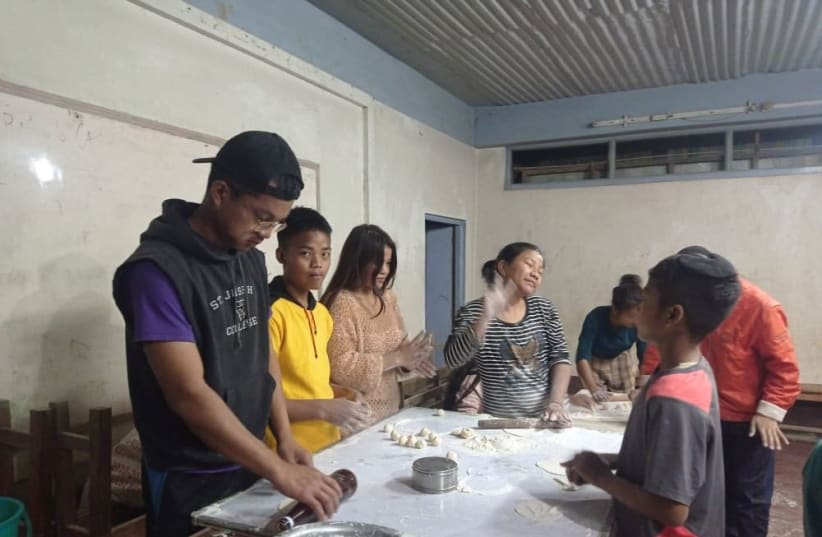The Bnei Menashe Jewish community in northeastern India began preparing matzah for Passover on Tuesday at the Shavei Israel Hebrew Center in Churachandpur.
The Bnei Menashe ethnic group is said to number at around 10,000, and are believed by many to be descended from one of the 10 Lost Tribes, specifically that of Menashe.
The Chief Rabbinate initially did not consider the Bnei Menashe to be Jewish, and their immigration was halted at the beginning of the 21st century.
In 2005, however, then-Sephardi chief Rabbi Shlomo Amar formally recognized the Bnei Menashe as descendants of one of the 10 Lost Tribes, although they were still required to convert to Judaism upon arrival in Israel.
The original claim of the Bnei Menashe to be descendants of the tribe of Menashe, exiled from the Land of Israel more than 2,700 years ago by the Assyrian empire, has aroused criticism in the past.
“Passover symbolizes the Jewish people’s deliverance and it is a festival that resonates deeply for the Bnei Menashe,” said Shavei Israel founder and chairman Michael Freund. “In the far-flung regions of northeastern India, thousands of Bnei Menashe will sit down on Passover eve to conduct the traditional seder, which embodies the hope they have been nurturing for generations: to make aliyah and return to the land of their ancestors, the Land of Israel.”
“Over the past two decades, we have brought over 4,000 Bnei Menashe to Israel,” Freund added. “We hope that after 27 centuries of exile, the remaining 6,500 Bnei Menashe still in India will be able to celebrate Passover next year in their Jewish homeland.”
Within their "exile," the community observes and practices Jewish tradition (i.e., observes the sabbath, keeps kosher and celebrates the holidays of the Jewish calendar).
Jeremy Sharon, Zachary Keyser and Aaron Reich contributed to this report.
